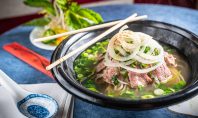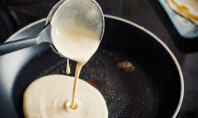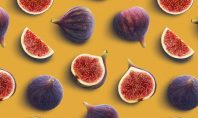Clover Hill Vineyards & Winery
A Family Tradition
What started out as a hobby is now the second largest winery by volume in Pennsylvania.
Clover Hill Vineyards & Winery, with four retail locations in and around the Lehigh Valley, began as a hobby when founders John and Pat Skrip planted grapes at their home in Breinigsville in the 1970s. That hobby developed into a passion, and they began producing wines that they wanted to share with others. In 1985, they opened the doors of Clover Hill Vineyards & Winery, producing around 1,000 gallons of wine in their first year of operation.
Growing up among the vines, two of the Skrip’s children have become an integral part of the family business.
In the early 1990s, after studying marketing at Penn State and enology (winemaking) at Fresno State in California, John Skrip III joined Clover Hill as its chief winemaker. Daughter Kari Skrip, seven years her brother’s junior, joined the family business after studying wine marketing at the University of Adelaide in Australia.
“The idea was for me to come back and do the marketing, but when I went to Fresno State I kind of fell in love with the process of making wine,” explained John Skrip III. “When we first started, everybody thought we were nuts making wine in Pennsylvania. In the ’80s, it was an uphill battle. People thought if it wasn’t French or from California it wasn’t good. It was like pushing water uphill.”
Now, with four retail shops including wine tasting, six vineyards encompassing 80 acres across the Lehigh Valley, an annual output of 80,000 gallons and capacity to produce 125,000 gallons, it’s safe to say that water has been turned into wine.
“My parents purchased the property in Breinigsville in 1976 to build a house there and also wanted to do something agriculturally with the land,” Kari Skrip said. “Dad was in construction and my mom had been a schoolteacher. In 1985, they decided to sell the construction company, go full-throttle and open up a winery. They didn’t have a lot of experience or background.”
Kari Skrip followed in her big brother’s footsteps, both in terms of joining the family business and with regard to her formal training. Before studying wine marketing and viticulture in Australia, she attended business school at Frostburg State University in Maryland.
The two siblings now run most of the day-to-day operations with mom handling the books and dad helping to make big-picture decisions. A tight-knit family business offers its challenges, John Skrip III said.
“With a family business everything is intensified. When we have fights, they can turn out to be doozies…but when everything clicks, it’s just rewarding. It’s nice to have those days where we’re getting along and making forward progress.”
“It’s interesting how my brother was so immersed in California wine culture and I was immersed in Australian wine culture and we both really wanted to come back to the family business in Pennsylvania,” Kari Skrip said. “We’re proud of the fact that when you are seeing farms chewed up left and right by development that we can be part of a farming business that can be profitable, arguably. It’s a really exciting business no matter where you are.”
Pennsylvania wines don’t taste like California wines, but they’re not supposed to, Kari Skrip said. It’s all about the “terroir.”
“That term really touches on the fact that everything that’s involved in a bottle of wine —growing conditions, the soil, the climate, the landscape—really gives that wine a sense of place, and I love that about wine. Wine from Washington state is uniquely different than anywhere else in the world, and I love that about Pennsylvania wine, too.”
Growing wine grapes in the region does present its challenges, as John Skrip III can attest.
“Probably the biggest factor that hinders us is that grapevines only need 12 inches of rain a year, and the Lehigh Valley averages 42 inches,” he said, adding that the extra moisture leads to disease pressures such as mold and mildew and fungi. “Spraying isn’t our favorite thing to do but it’s a necessary evil, and we try to utilize it as respectfully as possible. If you’re going to grow grapes on the East Coast, there is really no way of getting around it.”
A more recent challenge, he said, has been the spotted lantern fly, a voracious pest believed to have been imported on granite shipped from South Korea.
“Unfortunately, the insect seems to like our area,” John Skrip III said. The pest bores into the grapevines and sucks the sap out, he said, leaving behind a telltale glistening honeydew coating on the ground. “It kind of bleeds the plant to death. It’s a tough pill to swallow when you’ve worked the soil with your hands, set up the grapes on trellises and pruned the vines—it’s a lot of work— and then this shows up at the 11th hour two weeks before harvest starts.”
The Skrip siblings said wine sales have been brisk during these challenging COVID-19 times, both with curbside sales at four retail locations and sales through grocery outlets.
“While other business are struggling…we have actually seen a big boost in sales,” John Skrip III said, expressing empathy for other businesses that are hurting. “People are staying home and enjoying our wine at night, and that is kind of rewarding.”
The Winery in Breinigsville
9850 Newton Rd | Breinigsville
610.395.2468
The Vineyard in Robesonia
17 Clover Hill Lane | Robesonia
610.693.8383
Allentown Fairgrounds Farmers Market
17th and Chew Streets
Allentown
610.439.3969
Boscov’s Fairgrounds Farmers Market
2934 N. Fifth St. Highway
Reading
610.921.3312
cloverhillwinery.com













